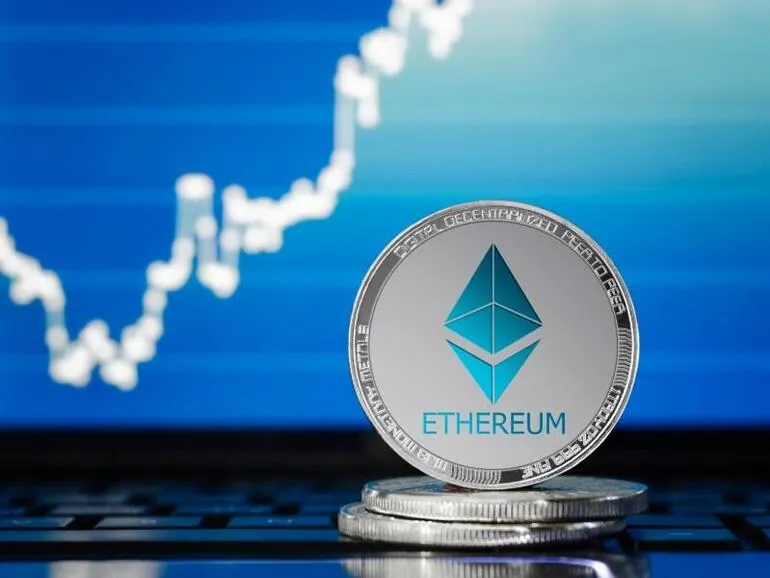Blockchain innovation gives a powerful strategy to building a decentralized database, yet it's not without its issues.

Contrasted and customary worker based frameworks where information is midway overseen, public blockchains.
The most widely recognized sort of blockchain utilized by cryptographic forms of money – depending on a conveyed organization of volunteer supporters of store data, add new squares, checks exchanges and secure the record.
This common way to deal with recording information benefits straightforwardness, decentralization and availability, however, it additionally requires a tremendous measure of coordination, energy and complex innovation to fill in as expected.
Also, the innovation is as yet creating and particularly in its earliest stages, and continually being tried by a consistently expanding number of Users.
Network size and scalability
One significant test that impacts certain blockchains is scaling to fulfil the need of new clients, particularly for the public (blockchains that are straightforwardly open to anybody.)
As of mid-2021, Bitcoin can just deal with 2.4 exchanges each second (down from 7 of every 2016), and every exchange costs around $2.46 (up from $0.20 in 2016).
Because of the 1-megabyte limit on block size, the Bitcoin record is intrinsically hard proportional. This is the reason optional scaling arrangements – approaches to further develop productivity outside the blockchain – are being executed, to be specific the Lightning Network and Segregated Witness (SegWit.)
Preparing enormous amounts of exchanges is another vital segment of the blockchain, yet in contrast to their incorporated partners, decentralized frameworks depend on the handling force of dispersed clients.
Contingent upon the number of volunteer givers there are running their PCs, known as "hubs," it can radically affect how rapidly the organization can work.

The Ethereum network was tried in late 2017 when CryptoKitties – computerized felines having a place with a blockchain-based NFT round of a similar name – became viral wares.
At their pinnacle, these extraordinary advanced resources based on the Ethereum blockchain represented around 10% of organization traffic.
Around then, the organization could just deal with roughly 15 exchanges each second, making it become multiplied and excavators requiring more "gas" – the expense charged to manage an effective exchange on Ethereum's blockchain. This exposed blockchain's restrictions to scale direct.
A blockchain's security is likewise just as solid as its organization of conveyed willful givers who run their PCs to keep up with the organization – known as "hubs."
If a blockchain doesn't have a hearty organization with a broadly disseminated network of hubs, it becomes undeniably more powerless against the malevolent movement, like 51% assaults (see underneath.)
Transaction costs and network speed
The basic expense of utilizing a blockchain-based stage is additionally another trouble spot for the innovation.
Some digital currencies, like ether and bitcoin, can expect Users to pay excessive charges to have exchanges handled in a convenient way. In February 2021, the normal ether exchange cost $20 to measure. This is a long way from the expenses charged by current stages like Solana, which are common $0.0000012 per exchange.
Regardless of whether there weren't significant expenses of utilizing some blockchains, because of their intricacy and circulated nature, blockchains can frequently be delayed during active occasions.
When there are more clients sending exchanges over the organization, it becomes blocked and instalments can take more time to measure than ordinary.
With blockchains that depend on diggers to approve exchanges, high blockage for the most part prompts higher expenses as individuals pay more to get their exchanges prepared quicker.
Unavoidable security flaw
Numerous blockchain advocates lecture the innovation is for all intents and purposes uncompromisable. Yet, there is one remarkable security blemish in bitcoin and other blockchains: if the greater part of the PCs filling in as organization hubs mislead, the untruth will turn into reality.
This is known as a '51% assault' – when noxious assailants deal with over half of an organization's blockchain; an issue foreshadowed by Satoshi Nakamoto when they distributed the Bitcoin white paper in 2008.
To restrict the chance of this happening, mining pools are firmly checked by the local area to guarantee nobody acquires outsize impact over the organization.
This implies blockchains with fewer members are all the more fundamentally more defenceless against these sorts of assaults. Bitcoin SV – a fork of Bitcoin – was as of late the casualty of a 51% assault that saw more than 100 squares get taken out from the blockchain, influencing more than 570,000 exchanges.
Blockchain politics
Since numerous blockchains permit supporters of the decision on the bearing and advancement of their conventions, and in light of the fact that excavators and different sorts of validators structure their own gatherings, there have been plentiful freedoms for public conflicts between various networks.
For instance, as Ethereum relocates from a mining-based evidence of-work blockchain to a proof-of-stake one, some portion of its 2.0 redesign includes eliminating diggers.
In any case, since diggers actually make up a huge piece of Ethereum's people group many have attempted to slow down or impede endeavours to do as such.
These conflicts are a remarkable element of the blockchain business and are communicated most unmistakably around the inquiry or occasion of "forking" a blockchain; a cycle that includes parting a blockchain into two separate blockchains. - - - This typically happens when a significant update isn't in reverse viable, or when engineers in a general sense differ on the best way to go ahead, prompting the task forking into two separate substances.
An exemplary illustration of this was when Bitcoin split in 2017 because of the inside struggle between engineers, prompting the production of Bitcoin Cash.
Energy consumption
As of late, mindfulness has been spreading about how much energy is utilized to control blockchains.
Elon Musk, CEO of electric vehicle maker Tesla, voiced his interests in May 2021 about the effect bitcoin mining was having on the climate, expressing Tesla would at this point don't acknowledge instalment in bitcoin until the business turns out to be adequately greener.
Around a similar time, China started forcefully authorizing a prohibition on crypto mining, compelling many organization validators to move to different nations.
The country referred to environmental change worries as one of its essential intentions in the restored crackdown.
Most blockchains require a lot of energy – most outstandingly evidence of-work (PoW) blockchains, including Bitcoin and numerous other original blockchains.
This framework requires power chugging PCs to contend with one another to find squares and add new clumps of exchange information to the blockchain, which different PCs would then be able to check.
The PCs important to run these calculations are regularly amazing, and with that force comes energy utilization.
As more individuals put resources into digital currencies and as organizations embrace blockchain innovation, comparing energy use has become an ecological and policy centred issue. Indeed, in the case of Bitcoin were a country, it would rank as the 38th biggest customer of power on the planet, positioning higher than Chile (as of Aug. 6, 2021).
There are more productive blockchain confirmation strategies like verification of-stake (PoS) that include haphazardly appointing the assignment of approval to a hub, and clients locking away a part of crypto resources in the organization. Yet, this would mean an enormous rebuilding of many set up blockchains.
I hope this helps. If this article is useful, share this in your circle, and/or sign up with my affiliate links on the below exchanges:
FTX: https://ftx.com/#a=beehivetrader
Okex: https://www.okex.com/join/2172681
Kucoin: https://www.kucoin.com/ucenter/signup?rcode=E3t8Ao&lang=en_US
Delta Exchange: https://www.delta.exchange/referral?code=CVIVP
